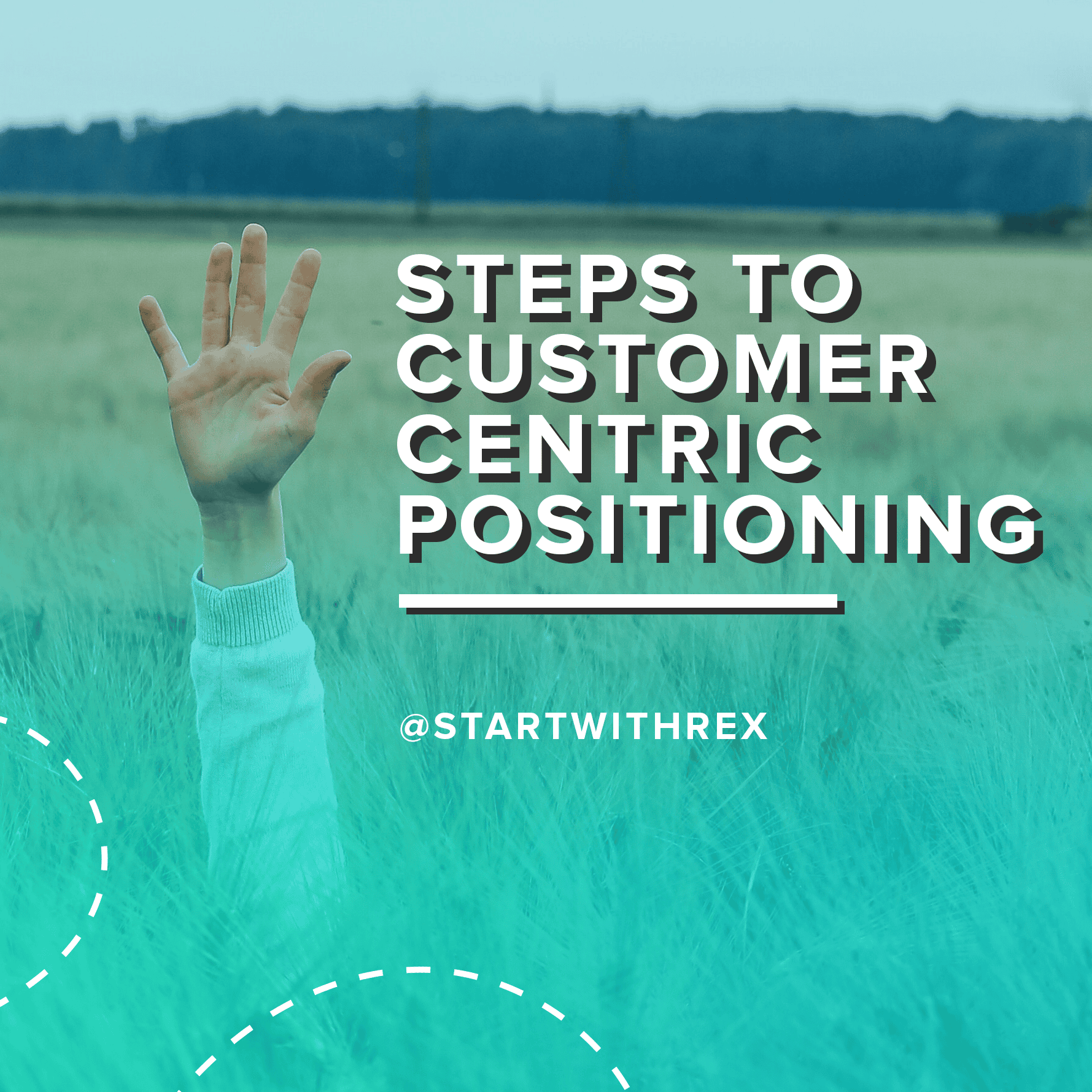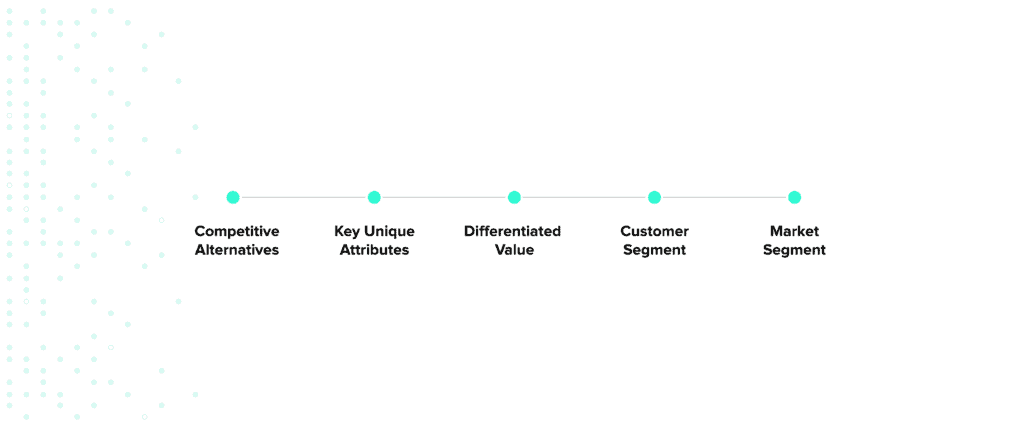Let's talk about you.
"*" indicates required fields

Last month, Melissa and Tessa from the REX team attended an industry presentation on brand positioning led by April Dunford and we thought that you entrepreneurs and visionaries out there in the early days of brand building might benefit from this great information!
Positioning describes how you are uniquely qualified to be a leader at something that an identified market segment cares about. Being able to define why your product and/or service is unique is crucial to expressing its perceived value to consumers.
Customers use what they know to make sense of what they don’t. Fighting for mindshare in saturated markets is hard, and poor positioning adds work to try and combat assumptions from consumers.
Your target market doesn’t:
So, how do you formulate a strong position?

Most strategies dive into identifying key product and/or service features or an ideal customer profile. But instead, ask your best customers: “What would you do if you didn’t have our solution? Who would you go to if we didn’t exist?” Would they go to another competitor? Do it themselves? Use a basic solution? Do nothing?
This will help you determine how you differentiate from their alternative options.
Now think about your key unique attributes. What features or capabilities does your solution have that the alternatives do not? What can you do that others can’t? Can anyone copy this?
Find your point of differentiation that’s meaningful for your customers. A point of differentiation is how your brand delivers benefits in ways that make you different from your competitors. What value does your key attributes bring to your customers? Why do your unique attributes and distinctions matter to them?
Determining your difference isn’t enough, you should be able to prove it. Think about how you back it up with proof and why your customers should believe you.
It’s impossible to be the best choice for everybody. It’s tempting, but you’ll end up being mediocre and average. Instead, discover the customer segment that actually cares about the value you deliver. If you had to close a deal this week, what type of customer would you focus on? That’s the customer segment you want to target. It’s important to build a campaign around what they care about and understand why they care; your business will have a strong foundation for success.
One of the most important things is to identify the ‘market category’ where your product and/or service competes with other brands. Markets develop, consumer needs change and competitor brands evolve. All of which creates the challenge – are you competing in the right market category?
A market category, simply put, is the market you compete in! It’s created by a common customer need and combined buying power, which in turn, typically creates product and/or service solutions — each form differing groups, offering alternative ways to satisfy the customer need. For example, product categories in a grocery store might be toothpaste, washing detergents or canned fish.
Market categories are created by needs, buying power, and products to satisfy needs. If a need is present, there’s a high chance that there are already products around to satisfy that need. Such products become a source of competition.
The market category should already exist in the minds of your consumers, so they have a frame of reference to understand what it is. For niche categories or new businesses with few customers — test the waters. You never know who’s going to bite!
Go back to step 1 and ask yourself, does this market category change your competitive alternatives?
It should become clear where your market positioning strategy should strengthen your brand, and attract new customers. Take care to do your due diligence, and you’ll be rewarded with a competition-proof brand.
Want to start talking about a strategic approach to growing your business online? Contact us for a free 30-minute consultation!
REX Marketing + Design Inc. is a multi-award-winning agency established in 2006 that focuses on strategic branding, marketing, and design. REX has a mission to contribute to the trust economy by catapulting values-based purpose-driven businesses to success. Discover more about REX Marketing + Design’s unique approach to building competition-proof brands.